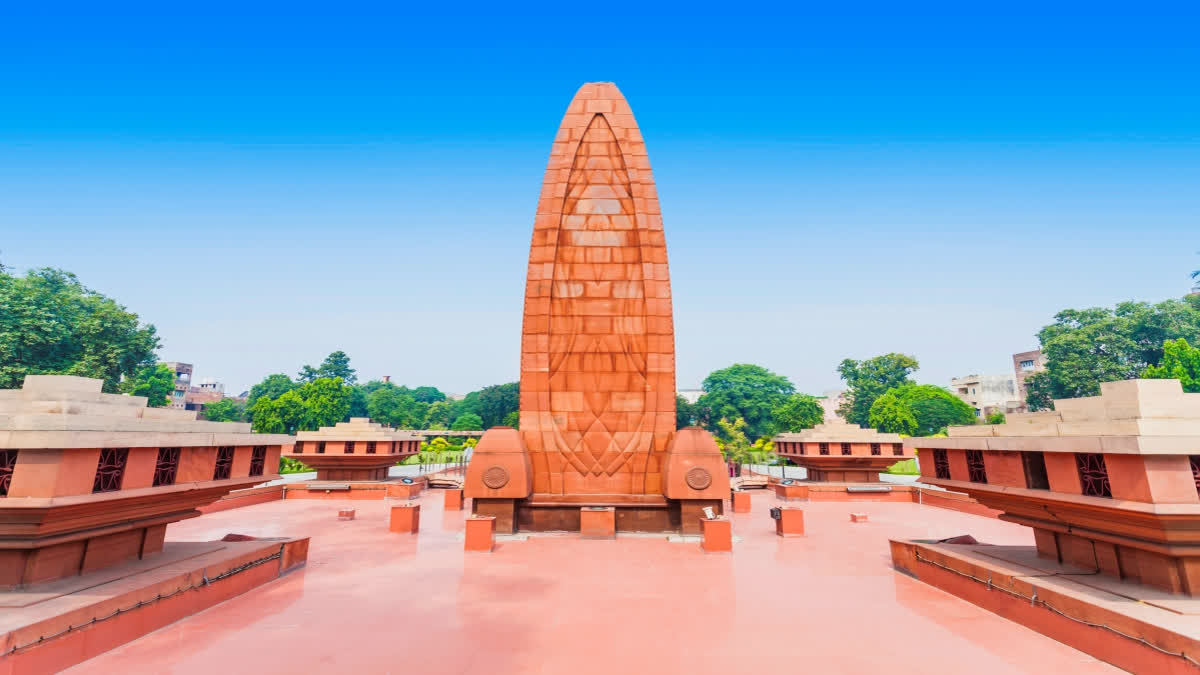Hyderabad: The most terrible day in Indian history was declared to be April 13, 1919. The Jallianwala Bagh Massacre, which occurred in Jallianwala Bagh, Amritsar, in the state of Punjab, was commemorated on this day. It was the worst incident in Indian history.
On Jallianwala Bagh Massacre Day in 2024, 105 years would have passed since the horrific event that is regarded as a watershed in Indian history. Mahatma Gandhi's whole dedication to the cause of Indian nationalism and independence from Britain resulted from this.
Here's what happened 105 years ago on April 13, 1919
April 13, 1919 (the day of Baisakhi), around 15,000-20,000 people gathered at Jallianwala Bagh which is a garden spread across six to seven acres in Amritsar in Punjab to peacefully protest the arrest of two leaders Dr. Satyapal and Dr. Saifuddin, despite a curfew being declared.
The number of people that killed in the Jallianwala Bagh Massacre was not officially recorded. However, the British government's official investigation found that 379 people had died, and the Congress claimed that over a thousand people were killed in the slaughter. It was like a dramatic sound and light show but, the dead bodies were real. Till now we can see the bullet marks on the wall of Jallianwala Bagh. This massacre was a turning point in India's freedom struggle that changed the roots of Indian history.
Udham Singh's Revenge After The Massacre:
Udham Singh witnessed General Dyer's inhuman action that took the lives of thousands of innocent people on April 13, 1919. After the Massacre, he took the pledge to teach the lesson to General Dyer and the governor of Punjab, Michael O'Dwyer, through the soil of Jallianwala Bagh. Udham Singh assassinated Michael O'Dwyer in London in 1940 as revenge against the massacre.
General Dyer's Death:
General Dyer "the Butcher of Amritsar" died of cerebral haemorrhage and arteriosclerosis in 1927.
UK Prime Minister On Jallianwala Bagh:
On 10th of April, 2019, then UK Prime Minister Theresa May expressed “regret” at the start of her weekly Prime Minister's Questions in the House of Commons for the Jallianwala Bagh massacre, ahead of the 100th anniversary of the killings on April 13. She described the Jallianwala Bagh massacre, 1919 a "shameful scar" on British Indian history.
As Her Majesty the Queen (Elizabeth II) said before visiting Jallianwala Bagh in 1997, it is a distressing example of our past history with India," she said in her statement. "We deeply regret what happened and the suffering caused. Theresa May stressed that the UK-India relationship is one of collaboration, partnership, prosperity and security. Indian diaspora makes an enormous contribution to British society.
The Massacre site of Jallianwala Bagh Memorial:
A memorial was erected at Jallianwala Bagh in 1951 in remembrance of the massacre victims. The park, spanning about 6.5 acres, has a museum with artefacts connected to the incident on exhibit. People congregate at the park on April 13 each year to honour the victims.
The Jallianwala Bagh Massacre is still remembered as a tragic event in Indian history, and its effects are being felt today. Many Indians were motivated to fight for their independence by the incident, which acted as a spark for the country's independence movement.



